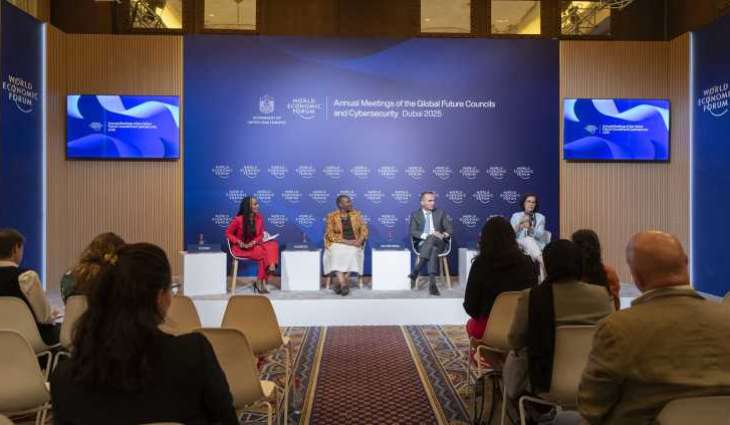DUBAI, (Pakistan Point News - 16th Oct, 2025) Leaders and experts stressed that the food sector is undergoing a significant transformation driven by innovation, with production and distribution methods being redefined through unconventional approaches.
The discussions took place during a session titled ‘Liberating Food’ at the Annual Meetings of the Global Future Councils and Cybersecurity 2025, organised by the UAE Government in collaboration with the World Economic Forum (WEF).
The panellists explained that while technology holds immense potential, it alone cannot dismantle the monopolies that restrict equitable access to food, particularly amid escalating climate crises and disruptions in global supply chains.
Moreover, the session examined growing challenges to global food security and explored strategies to address them. It went on to underscore the opportunities that modern technology offers to expand arable land and enhance the production of improved and safer food products, including lab-grown meat, AI-driven smart agriculture, and the development of climate-resilient crops.
Moderated by Fifi Peters, Senior Anchor at CNBC Africa, the session was attended by Dr. Ismahane Elouafi, Executive Managing Director of the Consultative Group on International Agricultural Research (CGIAR) in France; Arnoud van den Berg, Group Chief Executive Officer of Al Dahra Holding; and Alice Ruhweza, President of the Alliance for a Green Revolution in Africa (AGRA).
Dr Ismahane Elouafi said, “Food security has faced growing challenges since 2017, exacerbated by successive crises. Despite the immense potential of continents like Africa, this potential remains largely underutilised due to weak infrastructure, insufficient irrigation water, and the lack of mechanisms facilitating access to markets. Bridging the gap between potential and actual production requires targeted investment in technology to improve efficiency and achieve sustainable, effective productivity.”
For his part, Arnoud van den Berg highlighted that while innovation is a fundamental pillar for enhancing food security, numerous effective methods to increase agricultural production already exist and do not necessarily depend on advanced AI technologies.
He cited the example of zero tillage agriculture, a traditional practice that has demonstrated its effectiveness over decades. This method enables production with minimal resources by reducing fuel and labour consumption, improving soil health, and enhancing moisture retention, which results in higher crop yields at lower costs.
Van den Berg added that this approach has demonstrated success on his company’s farms, where yields have frequently exceeded the national average. He emphasised that the challenge is not in inventing more technologies, but in adopting existing solutions and scaling up their usage, arguing that this requires addressing the gaps in financing and knowledge that prevent farmers from benefiting from these advancements.
Meanwhile, Alice Ruhweza emphasised that the greatest challenge is not the availability of technologies, but their expansion to reach millions of farmers. “The innovation chain is currently stalled due to a lack of investment and weak technology transfer,” she said.
“We urgently need a holistic approach that integrates enabling policies, effective investment, and knowledge to empower everyone towards self-sufficiency. Inspiring examples exist, such as Ethiopia’s model, where the nation achieved wheat self-sufficiency in just three years by implementing irrigation, utilising new land, applying best technologies, and forming cooperative groups for smallholder farmers.”
Ruhweza attributed this success to several factors, including determination, technology, and sound investment.
In conclusion, participants underlined that achieving sustainable and resilient food security requires a comprehensive approach that combines technological innovation with political reforms, sustainable investments, and the empowerment of local communities. Experts noted it is equally crucial to focus on the interdependent relationship between food, water, energy, and humans.




